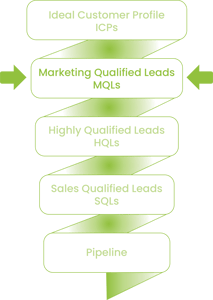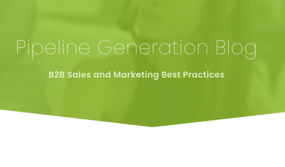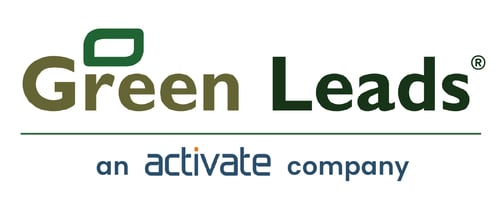The B2B buyer’s journey is the complete process a buyer or account will go through from initial awareness of a product or solution to the final evaluation and decision to purchase your product or service. If the target customer is large, then there could be as many as 10 different decision makers that stand in your way who will ultimately weigh in on if your product or service is right for them.
According to Gartner – “B2B buyers spend only 17% of the total purchase journey with sales reps.” This is significant because if your sales reps engage with a lead at the wrong stage in their buyer’s journey then the probability of any deal closing is drastically reduced.
In order to determine when to deploy your sales reps you first need to understand and quantify where your lead is in their buyer’s journey. To do this we first need to asses where this lead came from: Were they inbound (from your website’s landing page or found you organically) or outbound (from targeted email outreach) or a combination of both? We must view every touch point with each lead holistically as this helps us gauge their temperature to determine how qualified they are and if it’s time to unleash our sales reps.
In this article we’ve put together information on how to best tackle a Marketing Qualified Lead to better support alignment between your marketing and sales teams. You can also see an MQL as the first step toward understanding your potential client’s needs, problems, and the solutions you can offer.

What Is A Marketing-Qualified Lead?
A Marketing Qualified Lead (MQL) is a potential customer that satisfies criteria reviewed by the marketing team to then be passed on to the sales team. This is a lead that has opted-in by showing intent or even in signaling to buy down the road. This lead also meets the requirements of having:
- Ideal Customer Profile Persona Requirements
- Accepted a promoted marketing asset
- Shown some level of interest in learning more about your company and offerings
We can look at the entire process as a funnel with generally four actionable steps including:
- ICP Persona Leads - This is where a business would examine their leads to see if one fits as an ideal customer profile and a target persona. With these parameters, you can see if a company meets your Ideal Customer Profile, which means that they have a higher probability of conducting business with you.
- Marketing Qualification - This next step takes the inbound/outbound leads as they become MQLs after being vetted by the marketing team.
- High Qualification - HQLs are generated in a similar manner to MQLs, but there is a larger interaction from the lead such as answering basic qualifying questions and/or they have expressed interest in talking with the sales team.
- Sales Qualification - Once validated, determined to be a beneficial lead of high value, then the sales team accepts the lead as a scheduled appointment.
In this case we’re discussing one of the earlier stages of the process with MQLs. This is a highly collaborative process as sales and marketing teams need to align, which is why the latter has to provide a potential client or customer to the former for prospective sales. The marketing team can strategically identify possible clients and customers in many ways by understanding what and who an MQL is.
The marketing team can understand a certain level of interest when the lead showcases engagement actions like providing contact information, adding items to the shopping cart, downloading materials, and returning to a website.
Why Is An MQL Important?
Lead generation is a significant marketing activity among firms that invest in personal selling or marketing agents for sales conversion. Modern online lead generation strategies employ tools to attract future customers or clients.
Because lead generation comes with a price, determining an MQL can help save a lot of costs associated with the complex and expensive process of lead generation strategies.
Knowing the qualifying leads is essential information because it allows the sales and marketing teams to decide how they should capture, respond, and convert the marketing leads to buying prospects. In other words, the lead's behaviors are central to marketing efforts to generate leads.
How Do You Identify And Evaluate an MQL?
Engagement and high qualifications are key to determining an MQL. We can see a high quality lead as one that will lead to conversion. Much of this is value based through attributes such as: interest, ideal buyer persona, and potential budget. These factors are based around earlier steps to align your practices with your potential customer.
Before creating a sale, some prospective customers will inquire and ask for more information about your product offerings. This is a great time to identify content and marketing channels for that lead. Think about targeted content rather than broad content. You should understand the importance of lead engagement and get a jump on targeting the channels your buyer uses. You have a better chance of capturing their attention and interest by understanding where they are.
At this time, the level of your lead's behavior is clear to you, which will help you determine the next move to sales conversion.

What Is Not Considered An MQL?
An MQL is a persona and account that matches your company's Ideal customer profile (ICP) and has engaged, shown interest, or intent online in some way, such as filling out a landing page lead form to download content. Opting in to further marketing outreach is a desired outcome of content marketing.MQLs are not ready for direct personal attention from your sales team, as they still need additional nurturing. They are just demonstrating the initial move to engage with the business but are not yet turning their actions into sales conversions. In this regard, it is essential to understand the difference between an MQL and SQL.
MQL vs. SQL: What Is The Difference?
The definition of an MQLs can vary from company to company depending on what is agreed upon from marketing and sales, but is most cases it is a opt-in lead that will be nurtured through a Marketing Automation communication process. The persona is still in the awareness and education phase of the buyer’s journey. The Sales Qualified Leads (SQLs) are leads that sales has accepted as a scheduled appointment.
n the B2B sales process, an SQL is considered at the bottom of the marketing funnel. They are a potential customer who is is looking to solve a problem and considering solutions, thus engaging a company that can provide the solution.
Finally, with enough awareness and consideration for the product offerings, the potential customers are ready to decide whether to buy or not. However, additional essential factors are necessary to influence the decision of the potential customers. They should have the budget, authority, business need, urgency, and the right attitude to make the sales conversion possible.

An MQL Does Not Guarantee A Sale
MQLs may have shown interest or engagement in your product or service offerings, but they are not yet proposing to close the deal. To capture them, the sales and marketing teams should clearly understand their needs to offer targeted solutions to move down the funnel to SQLs. The efforts and initiatives taken in the MQL stage will have a direct impact on how the sales team is able to finalize the process.
Examples Of MQLs
The following actions are associated with MQLs because of the leads' related interest or engagement that showcases their eagerness to be aware, consider the product offerings, and decide on a purchase if necessary. MQLs can be generated as “Inbound Leads” from organic searches or through Outbound tactics, such as Content syndication or promotion, that proactively creates a opt-in lead by promoting your brand and/or product to a broader audience.
- Browse your product pages. Those who browse your product pages are potential customers or clients because they manifest their search for their needs or specifications and want more awareness about the product offerings.
- Click on a link. Individuals who click on the link are eager to learn more about the page they are trying to have access to. This step could be either part of forming their awareness, consideration, or decision about buying a product.
- Download a white paper. When customers download the marketing document, they are in the phase of the buyer’s journey that they are researching solutions to a problem or need.
- Understand how your product can achieve their goals. When customers try to investigate the products further and understand more about them, it is an indicator of significant interest for awareness purposes that have the potential for sales conversion later.
- Request additional information on a product. Requesting a piece of other information about the product is a green light for marketers. It depicts a certain level of interest in product or service offerings.
- Attend a webinar. Attending a webinar has a different purpose, but for customers who want to learn more about a particular product or service, that means a lot. Awareness is crucial in developing the customers' interest in buying the product.
- Subscribe to your blog or newsletter. Potential customers eager to get an update about a product or service through subscribing to a blog or newsletter show a certain level of engagement for future sales conversion.
Other MQLs can provide their contact information, opt into a program, add e-commerce items to their shopping cart, and more.

Start Creating And Using MQLs
Because marketing lead creation requires a substantial cost, marketers must be able to create and use MQLs the right way. Criteria or standards must be set. In this way, fundamental marketing approaches are necessary.
Market segmentation of the leads is essential, ensuring that the broad market can be specialized or categorized for strategic marketing approaches.
On the other hand, remember that awareness, consideration, and decision are different stages associated with buying behaviors. Understanding these stages will help marketers develop the required custom content for each.
Finally, marketers must be able to effectively offer value of the product or service offering for effective MQL generation and use.
Utilize MQLs But Don’t Be Overly Reliant
As mentioned, MQLs are one step in the marketing funnel. You should understand them as opt-in compliant leads at the top of the funnel, but there are other levels below that rely on your efforts at this stage.
You can see an MQL as a contribution to the overall process. Some marketers confuse this step with being the #1 reason for generating, or even finalizing, a lead. However, you cannot prioritize measures in one stage over the other. The focus should be on setting measurable goals, understanding necessary metrics, and moving down the pipeline when time.
Think about targeted content with actionable CTAs, conversion rates, marketing costs, and multiple metrics rather than relying on singular metrics. The goal is to think of the long-term rather than short sighted goals.
Don’t Get Left Behind, Follow The Lead
With tough competition in many marketplaces, it is timely that marketers and sales teams unite and collaborate to transform potential customers or clients into sales and revenue conversion.
Optimizing the purpose and importance of MQLs is an beneficial approach to understanding your
At Green Leads we leverage various techniques to generate MQLs. Once an MQL is generated and the prospect has downloaded or accepted a promoted asset, attended an event, submitted an online submission, and/or initiated a web chat
Then, our data team performs phone validation, email deliverability, and optionally LinkedIn profile URLs for Q/A to the lead.
These steps are crucial to understanding your buyer’s journey as MQLs fit within the process. For more on lead generation and the buyer’s journey, check out this episode of the Let’s Talk Sales podcast with Elizabeth Frederick. We talk about:
- The importance of content marketing
- The need for a sales and marketing partnership
- Intent leads and signals of movement
- Making use of customer data and data platforms
- Developing and training salespeople
To get started today on your MQL Leads, schedule a call with us and we’ll talk about how Green Leads can help you to better generate MQLs for the future.



